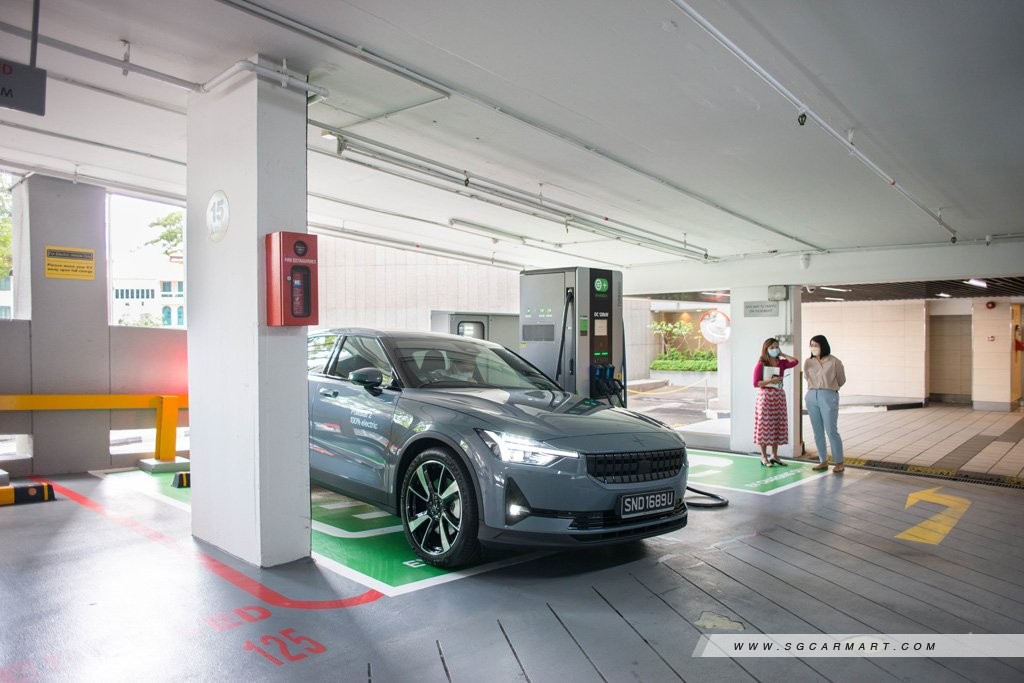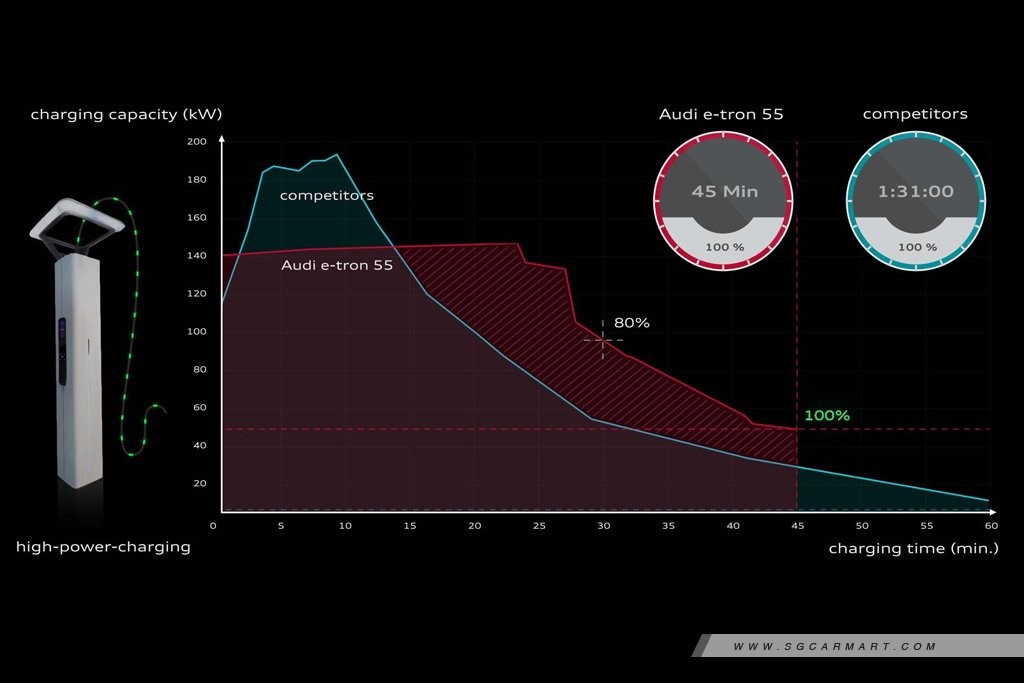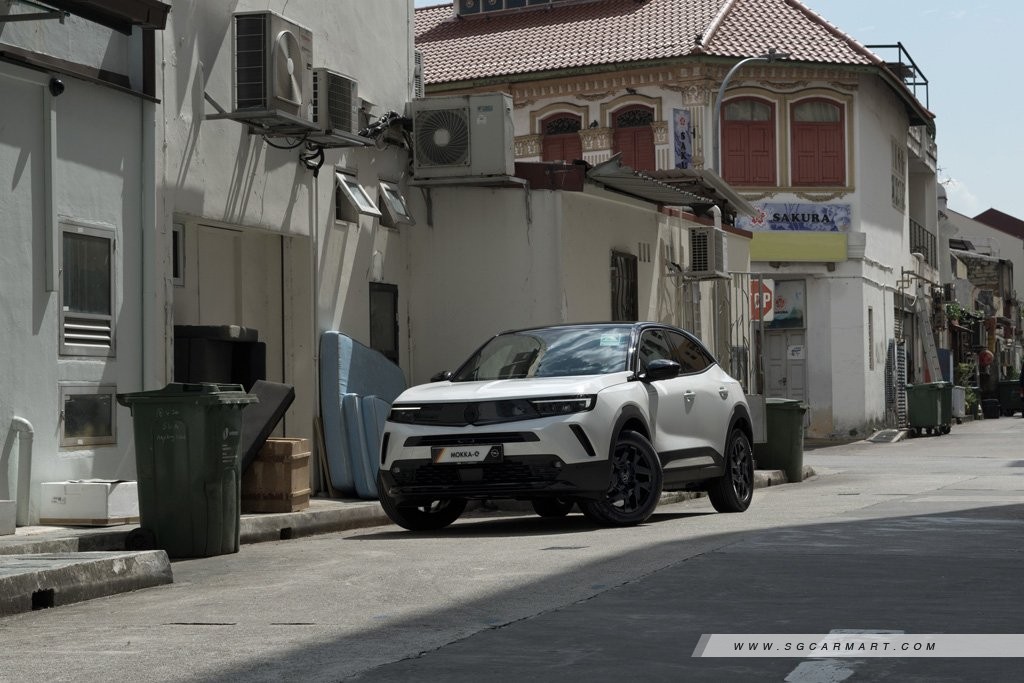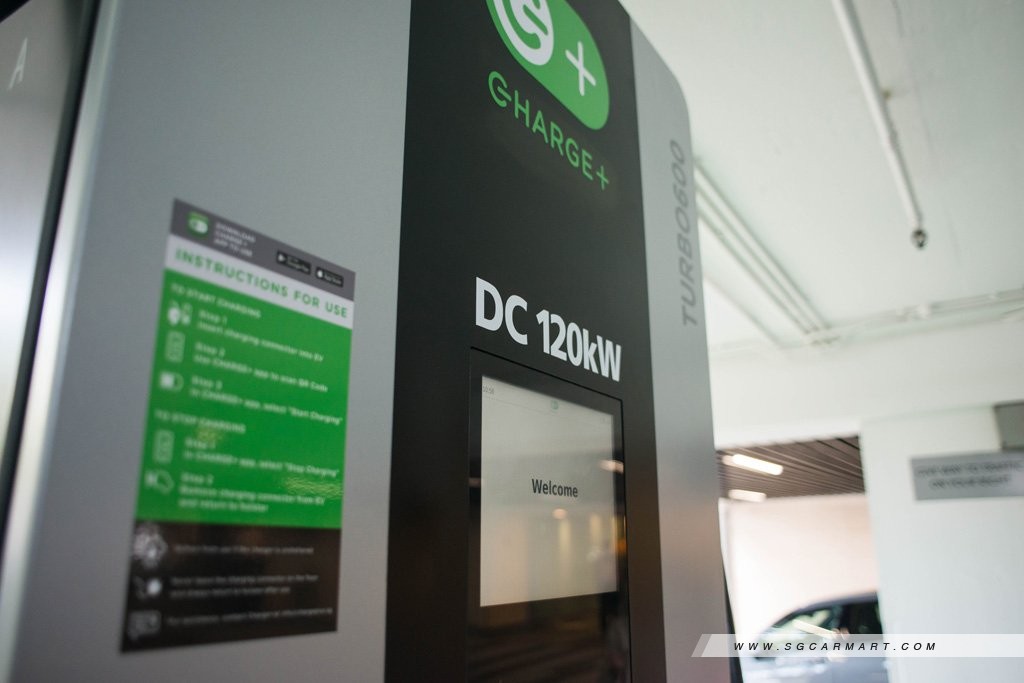6 things you need to know before getting your first electric car


From understanding charging speeds to basic battery care advice, here are some of the essential things you'll need to know about electric cars, as well as some of the lessons we have gathered from our various drives.
Read on and you'll be equipped with all the information you need before you get your first all-electric car!

You must have seen those Shell and SP fast chargers around by now. They typically come with two plugs, one supplying AC power (usually at 43kW) and the other supplying DC power (typically at 50kW).
The charging speed offered by both these plugs may be close, but don't be fooled.
You may not need to know exactly what's the difference between an AC supply and a DC supply to keep your car topped up, but you wouldn't want to plug your car into the wrong supply either.
And that's because the maximum charging speed of your car for either source can vary greatly.
[[nid:597266]]
The MINI Electric for example, will charge at a maximum of 50kW if you take the DC plug, but your charging speed tops at 11kW if you take the AC plug instead.
The BYD e6 meanwhile, can charge at 60kW via a DC current, and 40kW via an AC supply. So the actual charging speed you'll achieve can very greatly depending on what you're driving and which source you pick.
And there's one additional thing you'll want to note: While most fast charging stations here in Singapore offer both AC and DC current, those chargers that are located at shopping centre carparks will likely offer only an AC supply, typically at a speed of 7kW, so don't expect a full battery when you return to your car, even after a full hour of charging.
Some charging apps will also levy a different per kW cost for between AC and DC current.
Charge+ for example, currently charges $0.54/kWh for DC current, and $0.45/kWh for AC current at its chargers located at the OCBC Centre.

As all-electric cars gain popularity here in Singapore, you'll also start to notice that more chargers will be occupied when you arrive. That's not great when what you're after is a quick top up.
Our advice? Have a charging plan in hand. Download a few charging apps and take note of one or two alternatives where you can get your car charged up.
This way, if a car is already occupying the charger you most frequent, you can immediately check for the availability of the next nearest charger and head off instead of wasting time waiting for the car ahead of you to charge.

And while we are on the subject of planning, also be sure to always accommodate extra charging time into your schedule.
Those charging speeds that manufacturers list for their cars are usually only archived under ideal conditions, and in the real world, you won't be able to stay within those conditions for long.
Battery temperature, age, and the battery's current state-of-charge will all have an adverse effect on your actual charging speed.
From our experience, plugging into a 50kW charger and charging a car up to 80 per cent capacity will typically yield an average charging speed that's close to 42kW.
So, whether you're headed for long road trip, or simply topping up your car in preparation for the busy weekday ahead, make sure you have an additional buffer time to get your car right up to the range that it needs.

We love electric cars for the quiet drive that they offer. But this quiet operation also means you're more likely to get pedestrians stepping out onto the road ahead of you.
Our advice: Don't be too eager to deploy that instant torque just because you have it.
Pay particular attention when driving in tight streets filled with blind corners, as well as when driving within industrial sites where the high background noise will make any acoustic pedestrian protection your car may play less apparent.

And there's another thing you'll also want to know before getting your first electric car – batteries will degrade over time.
As with many of our electronic devices that run on lithium-ion batteries, the battery in your car is expected to lose some of its ability to store charge over time and with repeated use.
Mercedes-Benz states, for example, that the battery pack in its EQS is guaranteed to retain at least 70 per cent of its original capacity, after a use term of 10 years or 250,000km.
Thankfully, there are some healthy habits you can adopt if you want to keep this battery wear to a minimum. Mercedes advices, for example, a few steps that mirror those also adopted to preserve the lifespan of laptop batteries.
These include charging up to a maximum of 80 per cent when charging you car via a DC fast charger, as well as to avoid fast charging as and when convenient.
You're also advised to leave your car at a medium charge level if you're not going to use your vehicle for an extended period, and to park your car in the shade on those blazing hot days.

Now that you're all ready to go all-electric, one final bit of advice before you go and find your next car: Shop for something that will suit your lifestyle.
Electric cars vary greatly in the total range and power offered, as well as their cost.
The Tesla Model 3 Performance may offer impressive acceleration alongside some nifty self-driving features, but also comes with a sizeable road tax bill.
If you're looking for economical commutes, sensible options like the Hyundai Kona Electric or the aforementioned BYD e6 will probably suit you better.
Make sure you shop for the right vehicle and you won't find the transition to electric power a pain.